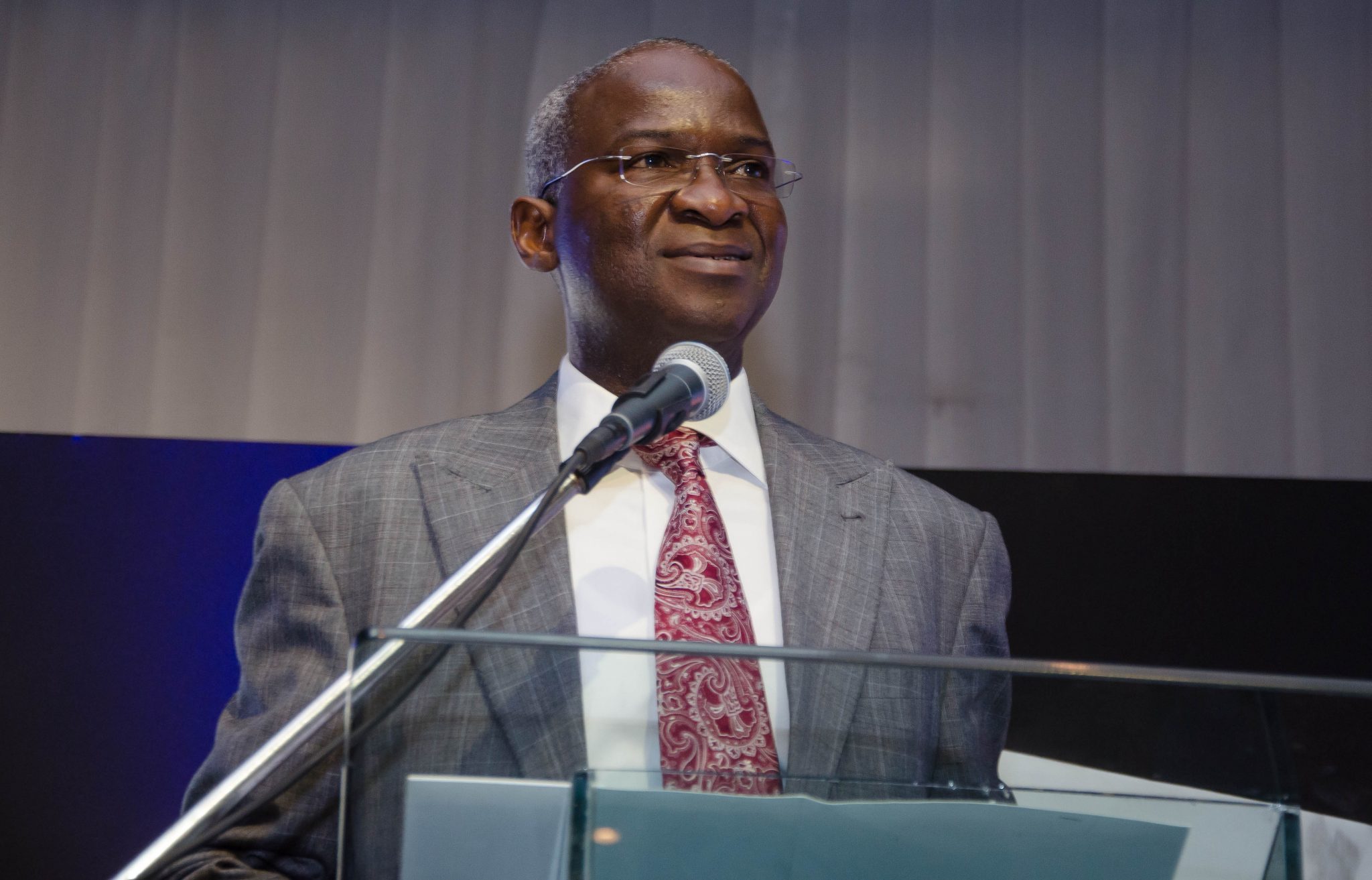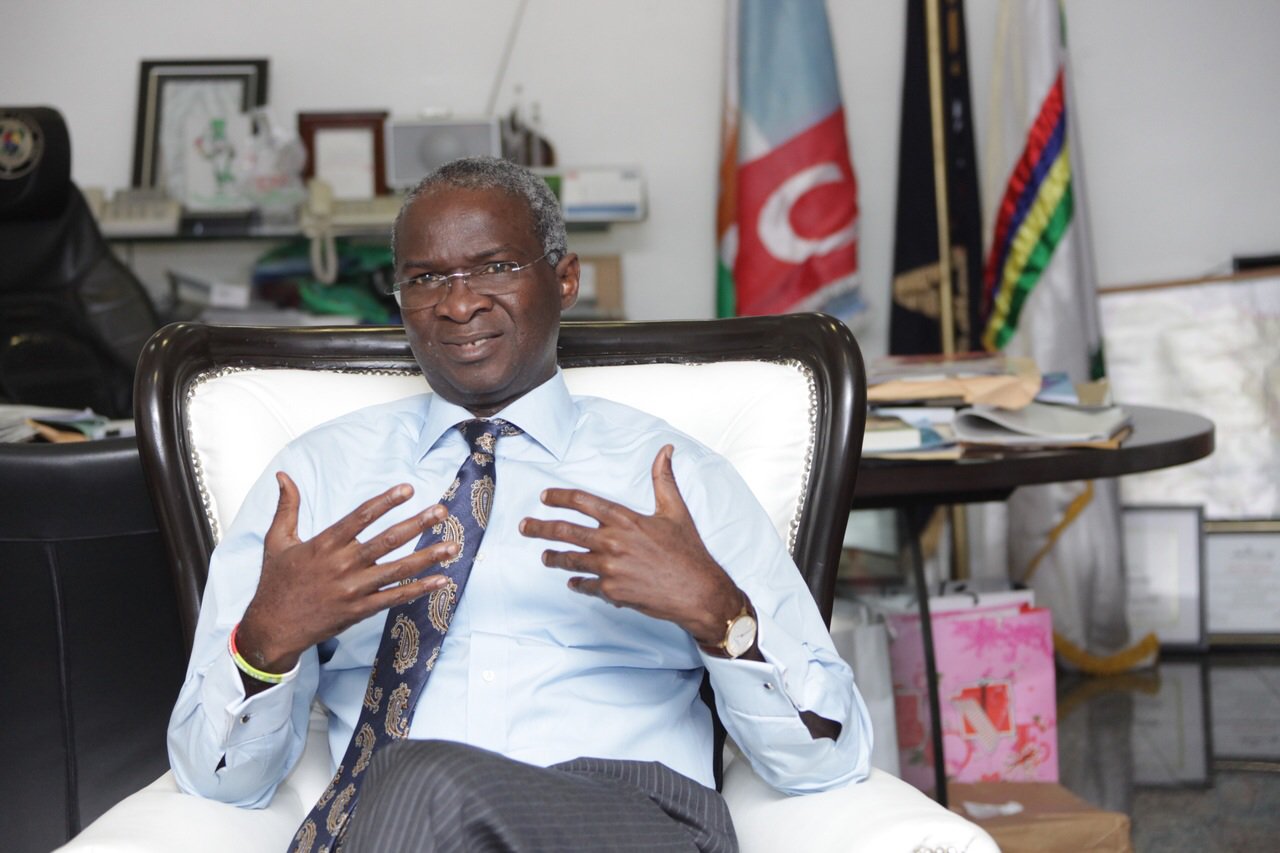The Minister of Power, Works and Housing, Babatunde Raji Fashola (SAN) has said the improved power supply noticed in the country is not caused by the president’s body language as claimed in some sections of the media.
The minister explained that the notable changes were as a result of a change in the mentality of members of the Buhari administration.
TheNewsGuru.com reports that Fashola made the comments while speaking at The Guardian Power Summit in Lagos on Thursday.
Fashola explained that the amount of power available on the grid on the day of Buhari’s inauguration was 2,690 MW, while the transmission capacity was around 5,000 MW.
He noted further that the distribution capacity existing at around 750 33/KV trading points, from where power is received by the DisCos and sent out, was about 4000 MW.
He stressed that the power then being generated at 2690 MW was not up to the transmission capacity of 5000 MW and was insufficient to optimise the distribution capacity of 4000 MW.
“Within a few months after President Buhari’s assumption of office, power improved and we all acknowledged. We credited it to the President’s ‘body language’,” he said.
“But the truth was that it had little to do with body language, and more to do with a sense of purpose that people sat up and began to do what ought to be done. In addition, the rains were upon us in July 2015 to September 2015. There was gas supply, which allowed the thermal plants to produce power.
“Therefore from hydro and thermal sources, we reached an all-time peak power production of 5,074MW before the damage to the pipelines started and we started losing power.
“We cannot damage power and gas assets and still expect them to provide service to us. It does not make sense.”
The former Lagos governor explained that the government had, however, taken steps to address issues in the sector.
These include engaging the aggrieved communities where the attacks were taking place to restore peace and repairing the damaged gas pipelines and gradually restored gas supply.
He added that the government also launched the economic recovery and growth plan which made power supply one of five critical pillars; and the Power Sector Recovery Programme to work out and implement policies and actions.
According to the minister, government also facilitated payment of debts to specific DisCos, and verification of debts to all others; payment assurance guarantee scheme of N701 billion to give confidence to GenCos, gas suppliers and their financiers; declaration of eligible customers, to encourage people to invest in building and expanding distribution asset; and development of mini grid regulations to encourage individuals and communities to build their own mini power generation and distribution facilities.
“All of these policies and action go beyond rhetoric. They are well thought-out decisions, consistent with law and informed by a thorough diagnosis of the problems in the sector that have produced a clear set of solutions to deliver incremental power,” he noted.
“The result is that as at 4 September 2017, the available power that can be put on the grid was 6619 MW (the incremental power we sought to achieve from 2069 MW in 2015); the transmission capacity was simulated at 6,700 MW (up from 5,000 MW in 2015) but the distribution capacity was 4,600 MW which was what was put on the grid.
“On September 12, 2017, production of power reached an all-time level of 7,001 MW.
“Clearly this is evidence-based progress, because we now produce more power then we can distribute. This does not mean that we have enough yet. It means that policies are working, but all the problems are not resolved.
“We must continue the Power Sector Recovery Programme to impact the distribution end of the value chain so that we distribute and sell everything that we produce as an incentive to more power production and supply.”
Fashola noted that the government was working toward solving the distribution problems as it plans to strengthen the governance of DisCos by reconstituting board representation in all the discos, a process that is also underway.
“Next is the implementation of eligible customers, he said, adding that the successful implementation of the policy will help heavy power consumers who are denied power because of defective distribution to make the investment by building the distribution equipment under arrangements and agreements with the DisCos.
“We are also looking at licensing some private power plants who have generation licenses and excess power, but no distribution license, to grant them permits to willing buyers especially in industrial clusters under regulations made by NERC,” he said.
Commenting further, he said that the Power Sector Recovery Programme also involves producing more power, like completing the first phase of 9 federal universities out of a planned 37; completion of power plants including the 240 MW Afam power plant among others; completion of several transmission projects across the country; and implementation of the meter supply and installation plan through licensing of service providers, franchise holders, and rural communities.
“Successes so far recorded in power generation and transmission have revealed that the work is far from finished, but the capacity that achieved the success in generation and transmission can demonstrably be transferred to solve the distribution problems.
“Finally, I believe that well-meaning and right-thinking Nigerians will agree, that the Buhari Government has gone way beyond rhetoric.
“We have evolved solutions that are already contributing to GDP growth, and the promise to do more, unlock the power value chain potential for enterprise and profit clearly lies ahead of us, with the successful implementation of the Power Sector Recovery Programme,” Fashola said.


